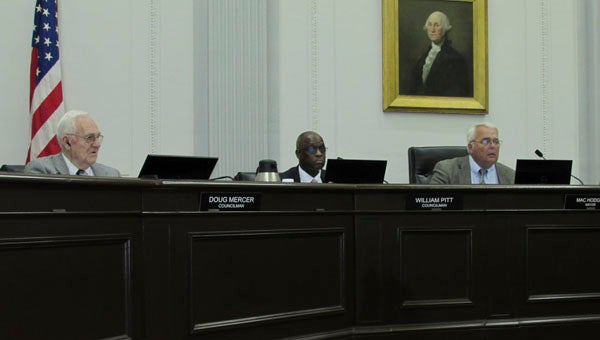Sharpen those pencils
Published 2:44 pm Friday, April 10, 2015

FILE PHOTO | DAILY NEWS
BUDGET TIME: Washington’s City Council, during its meeting Monday, will receive the city manager’s proposed budget for the upcoming fiscal year. The council, by law, must have the next budget in place by June 30.
Although the Washington City Council began some preliminary work on the upcoming 2015-2016 fiscal year budget several months ago, its budget-preparation efforts for the next fiscal year will go into high gear Monday might.
That’s when City Manager Brian Alligood presents his recommended budget to the council. Even before he presents it to the council, Alligood knows that spending plan will be changed by the council before it takes effect July 1.
It’s probably a safe bet Alligood’s recommended budget will not call for an increase in the city’s property-tax rate. Alligood understands the City Council wants to avoid such a tax increase. In fact, Alligood’s budget proposal should reflect what the City Council — in recent months — has told the city manager what it wants to accomplish and address in the next fiscal year.
One challenge Alligood faced in putting together is recommended budget was finding a way to replace revenue the city had been receiving from issuing business licenses. On May 29, 2014, the Legislature passed, and Gov. Pat McCrory signed, a law that affected business (or privilege) license taxes in North Carolina. That law removed from local governments the authority to levy business-license fees beginning with the 2015-2016 fiscal year, which begins July 1.
The business-license fees used to bring in about $200,000 in revenue each year for the city, according to Matt Rauschenbach, the city’s chief financial officer. The amount fell to about $120,000 a few years ago after the city modified its fee schedule for business licenses, he said. The city took in about $123,000 in such revenue during the 2013-2014 fiscal year, he said earlier this year.
During a City Council meeting late last year, Alligood said it would take an increase of 1.5 cents on the city’s property-tax rate to replace the revenue the city would lose when it no longer can impose business-license fees. Currently, the city’s property-tax rate is 50 cents per $100 valuation. A penny on the tax rate generates about $83,000 in revenue for the city, according Rauschenbach.
Don’t expect Alligood’s budget proposal to call for a tax increase to replace the revenue once generated by the issuance of business licenses. Alligood knows the City Council would not accept that suggestion.
And when it comes to the city’s budget, the council’s job is to find the money to implement whatever budget it approves for the next fiscal year.
That job gets serious when Alligood presents his recommended budget Monday night.




